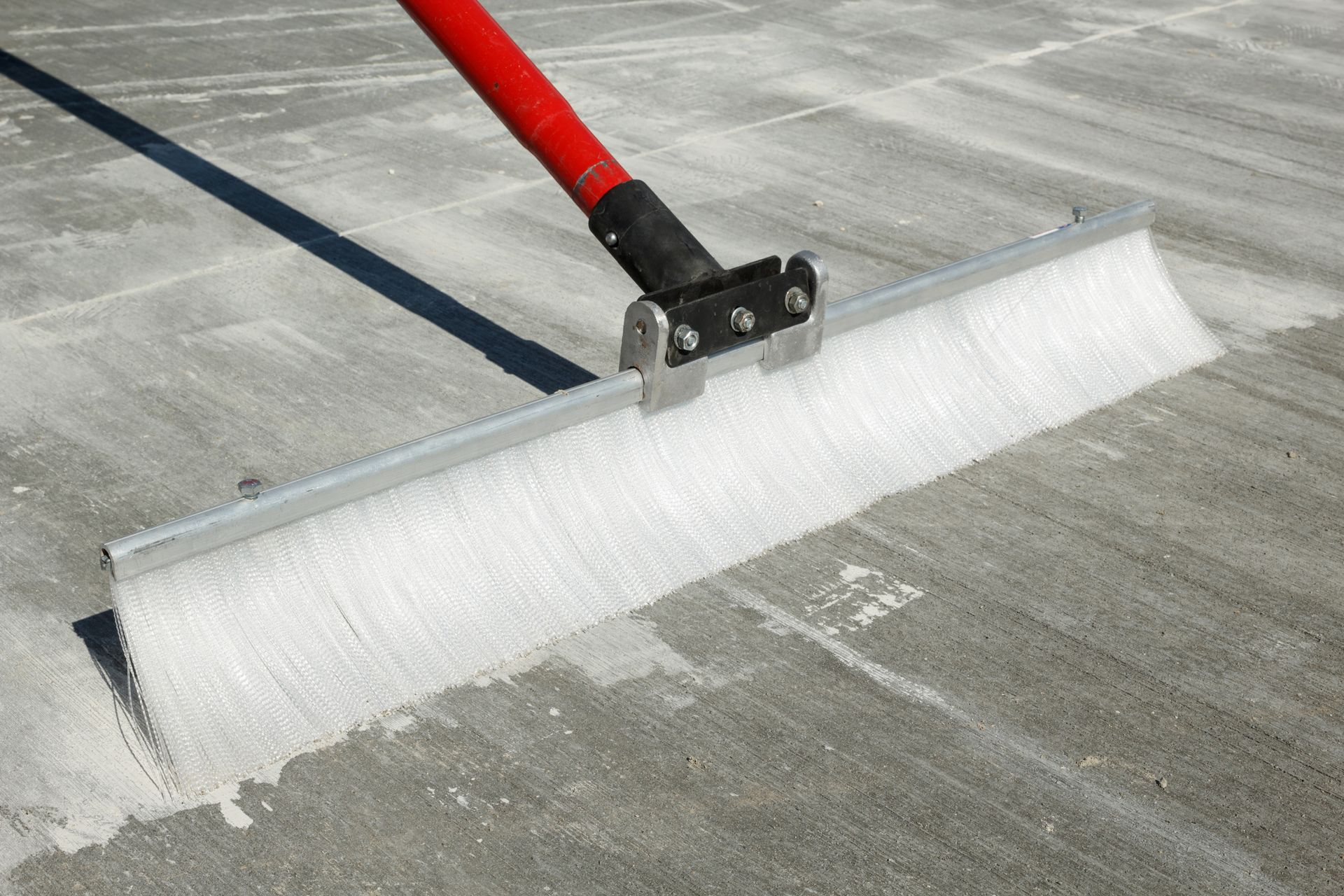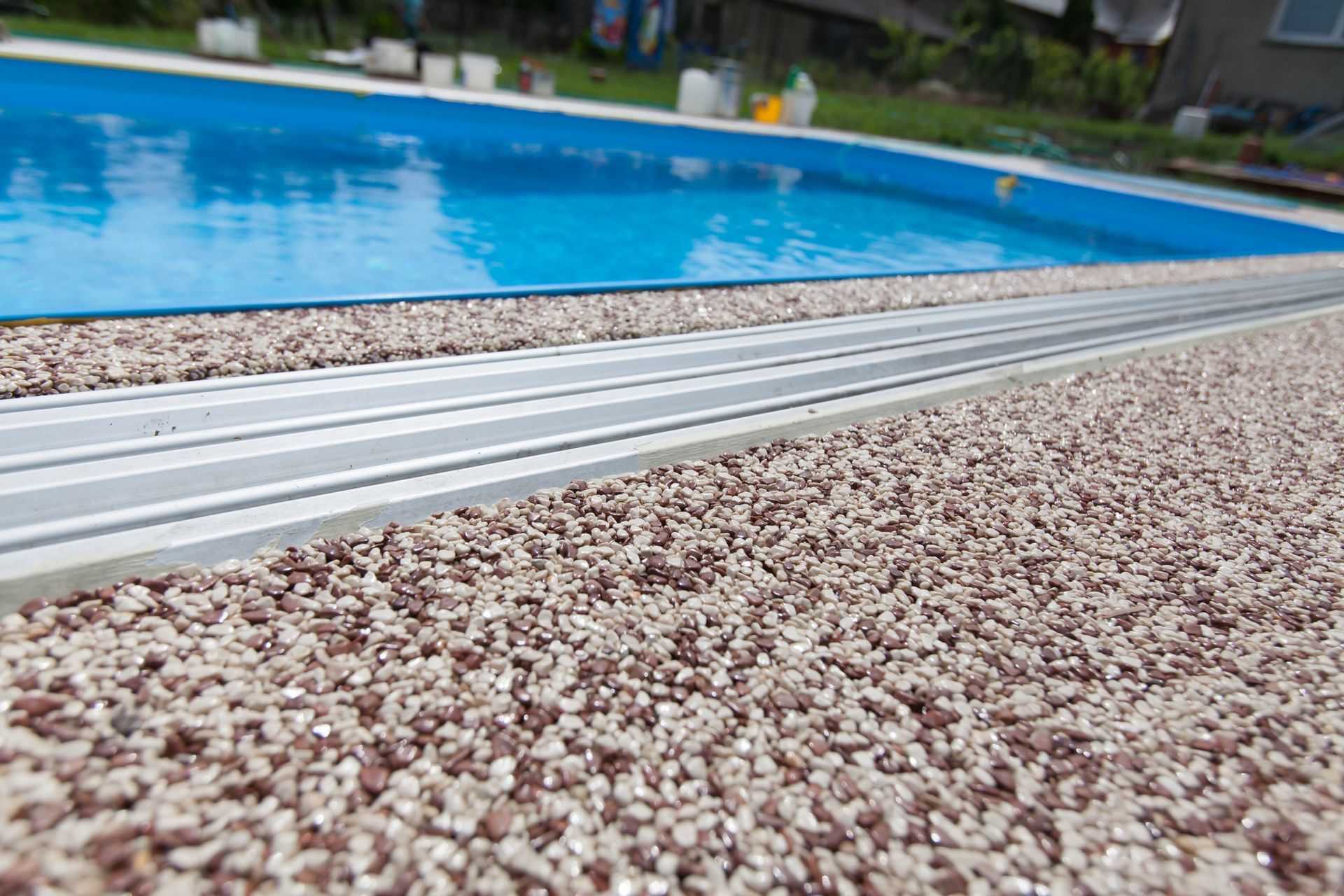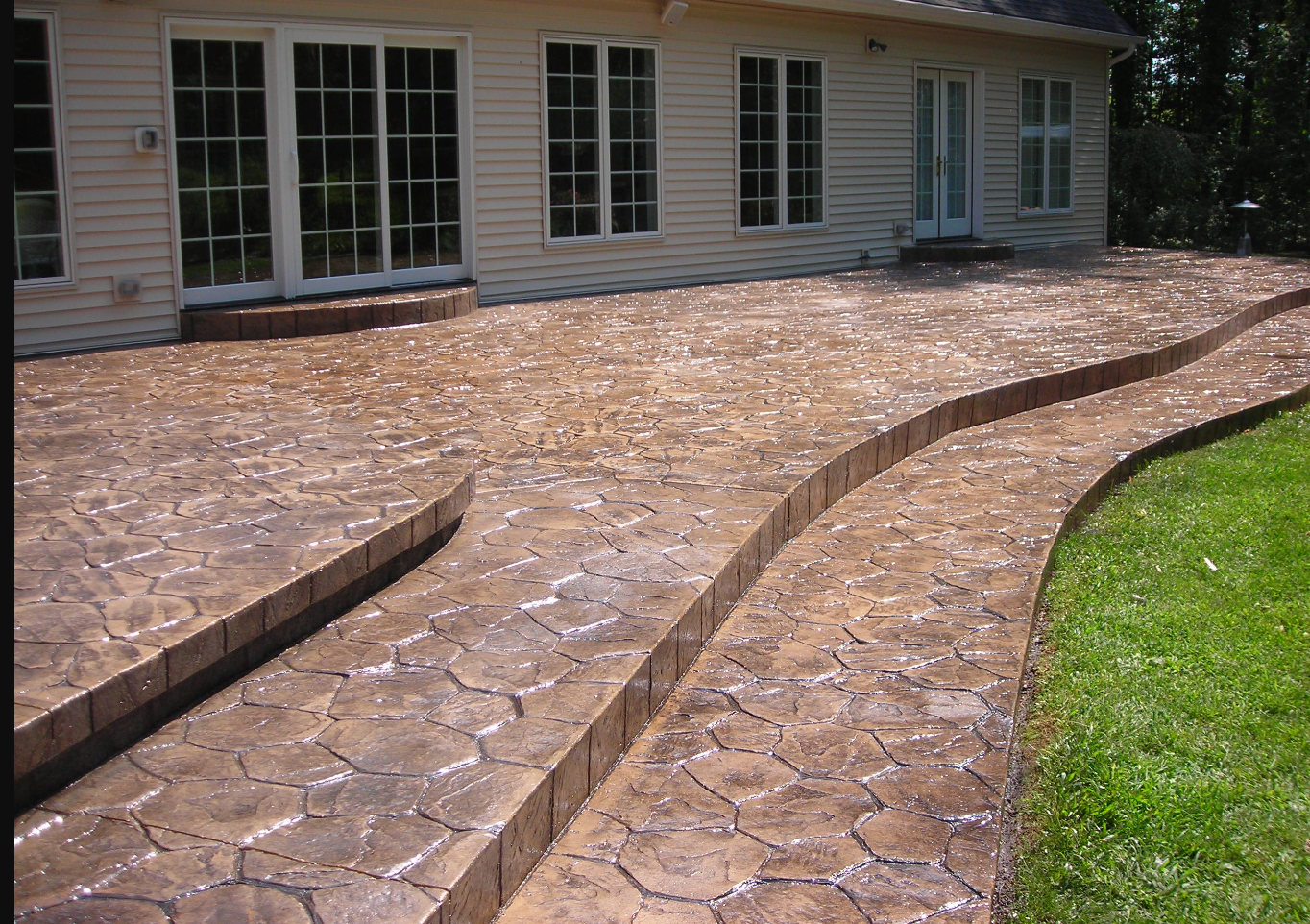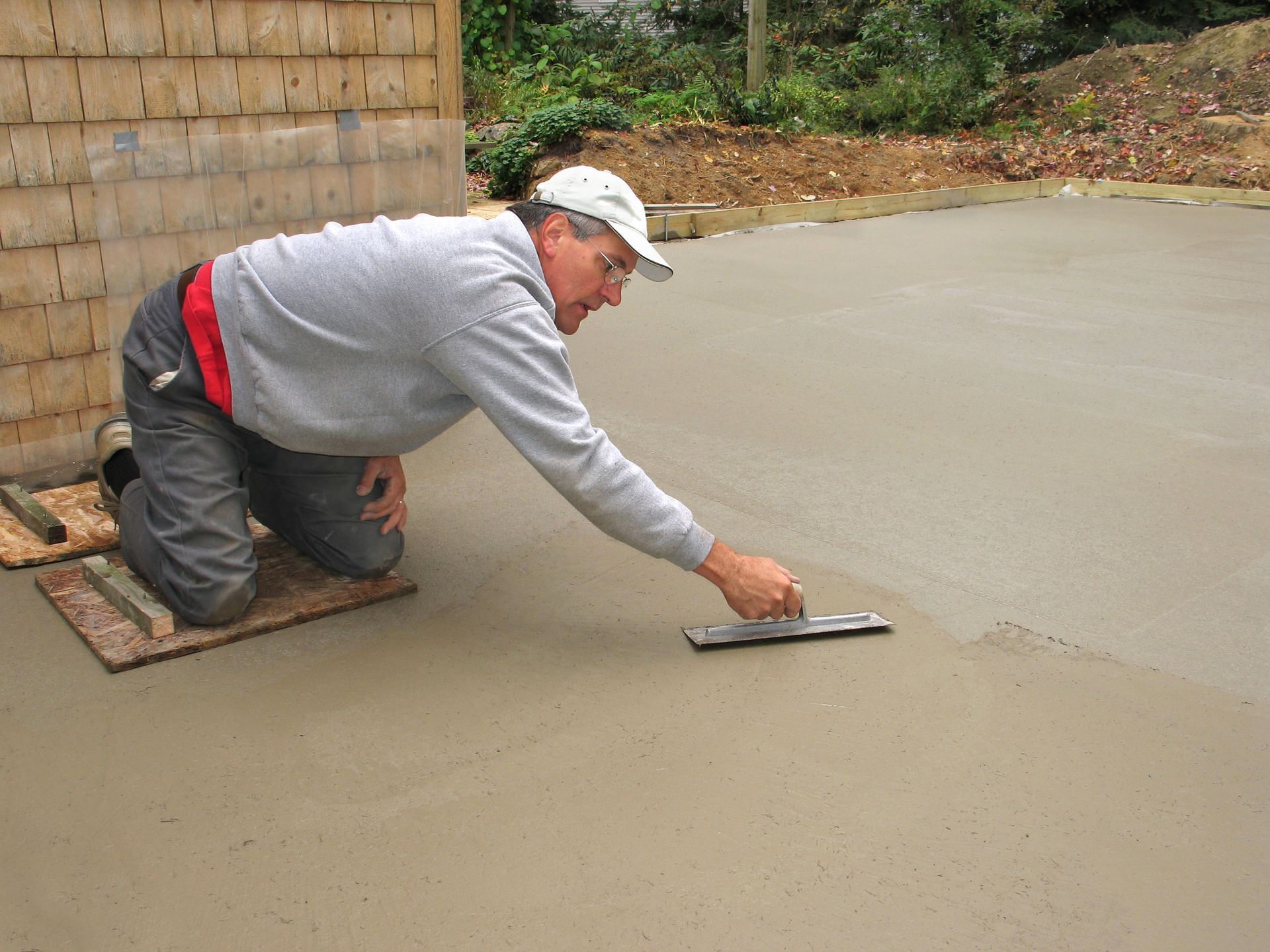Finishing and Sealing Concrete
Finishing and Sealing
Finishing and Sealing are essential steps in the process of pouring concrete. They not only enhance the appearance of the concrete surface but also contribute to its durability and longevity. Whether you're working on a driveway, patio, or other concrete structure, understanding the importance of finishing and sealing is crucial for achieving a professional and long-lasting result.
Finishing concrete involves the application of various techniques and tools to create the desired texture and smoothness on the surface. The finishing process begins once the concrete has been poured and leveled.
Here are some common finishing techniques:
Broom Finish:
A broom finish or brush finish is achieved by dragging a broom across the surface of the concrete. This technique creates texture and improves traction, making it suitable for outdoor areas such as sidewalks and driveways. It is important to time the brooming process correctly, typically when the concrete has partially hardened but is still workable.
Exposed Aggregate:
Exposed aggregate concrete finish involves removing the top layer of concrete to expose the embedded aggregate (stones, pebbles, or decorative materials). This technique provides an aesthetically pleasing surface with texture and visual interest. It is achieved by either washing off the top layer of concrete or by using chemical retarders and then pressure washing.
Stamped Concrete:
Stamped concrete or textured concrete is a popular finishing technique that allows for the creation of various patterns and textures resembling natural materials like stone, brick, or tile. Stamps are pressed into the concrete surface to create the desired design. Stamped concrete is commonly used for patios, pool decks, and walkways, offering a decorative and durable alternative to traditional materials.
Trowel Finishing:
Trowel finishing is the most popular technique used to achieve a smooth and level surface on freshly poured concrete. It involves the use of a trowel, a flat metal blade with a handle, to flatten and refine the concrete surface. The trowel is typically held at a slight angle and applied with sweeping motions to eliminate imperfections, such as bumps or ridges.
Trowel finishing helps create a polished and professional look, making it suitable for areas where a smooth, sleek surface is desired, such as
floors, countertops, or decorative concrete applications. It requires skill and precision to ensure an even and consistent finish, and proper timing is essential to avoid overworking the concrete.




Once the desired finish has been achieved, it is important to protect the concrete surface by applying a sealer. Concrete sealers are coatings that provide a barrier, protecting the concrete from moisture, stains, and other potential damage.
Here are some key benefits of sealing concrete:
Durability:
Sealing concrete helps increase its durability by protecting it from water absorption, freeze-thaw cycles, and chemical intrusion. It reduces the risk of cracks, spalling, and other forms of deterioration, thereby extending the lifespan of the concrete.
Stain Resistance: Concrete sealers create a protective layer that resists stains from oil, grease, chemicals, and other substances. This is particularly important for driveways, garage floors, or areas where there is a higher likelihood of spills or exposure to harsh substances.
UV Protection:
Exterior concrete surfaces are exposed to the sun's ultraviolet (UV) rays, which can cause fading and discoloration over time. A sealer with UV protection can help prevent color fading and maintain the appearance of the concrete for a longer period.
Easy Maintenance: Sealed concrete surfaces are easier to clean and maintain. The sealer acts as a barrier, preventing dirt, dust, and other debris from penetrating the concrete. Regular cleaning with mild detergent and water is usually sufficient to keep the surface looking clean and fresh.
Enhances Appearance:
Concrete sealers come in various finishes, including glossy, semi-gloss, and matte. They can enhance the natural color and shine of the concrete, giving it a polished and professional look. Sealing also helps highlight decorative finishes, such as exposed aggregate or stamped patterns.
When selecting a sealer, it is important to consider the specific requirements of your project and the type of concrete surface. There are two main types of sealers: film-forming sealers and penetrating sealers.
Film-forming sealers create a protective film on the surface of the concrete. They offer excellent stain resistance and enhance the appearance of the concrete. However, they may require periodic reapplication and can be prone to wear and peeling over time.
Penetrating sealers penetrate the pores of the concrete, chemically reacting with it to create a water-repellent barrier. They provide long-lasting protection and do not alter the appearance of the concrete significantly. Penetrating sealers are suitable for both interior and exterior applications.
Before applying the sealer, it is important to prepare the concrete surface by ensuring it is clean and free of any contaminants. Follow the manufacturer's instructions for application, including the recommended number of coats and drying time between coats. Use appropriate tools such as rollers, brushes, or sprayers to achieve an even and uniform application.
In conclusion, finishing and sealing are crucial steps in the process of pouring concrete. The finishing techniques applied can enhance the appearance and texture of the concrete surface, while the application of a sealer provides protection against moisture, stains, and other forms of damage. Whether it's a broom finish, exposed aggregate, or
stamped patterns, the finishing technique should be selected based on the desired aesthetic and functional requirements. Similarly, choosing the right sealer and applying it correctly ensures the longevity and maintenance of the concrete structure. Taking the time to properly finish and seal your concrete project will result in a beautiful and durable surface that will withstand the test of time.
Call Us today at (216) 677-1033 for a free quote. You'll be glad you did!
Precision Concrete Contractors
